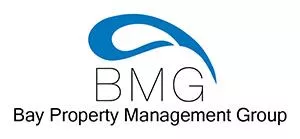How to Handle and Avoid Delinquent Rent Payments
Late rent payments are one of the most common landlord-tenant disputes. Although sometimes it’s just an innocent mistake, late rent payments can impact your business and finances. So, what can you do if your tenant forgets to pay or pays late? Here’s how to handle delinquent rent and avoid late payments in the future.
How to Handle Delinquent Rent Payments
 Delinquent rent is rent that is due but not paid by a tenant in a rental home. That said, dealing with delinquent rent payments is generally a significant inconvenience for landlords. However, it’s important that you don’t retaliate. Here are a few ways to handle late rent payments in your rental properties.
Delinquent rent is rent that is due but not paid by a tenant in a rental home. That said, dealing with delinquent rent payments is generally a significant inconvenience for landlords. However, it’s important that you don’t retaliate. Here are a few ways to handle late rent payments in your rental properties.
- Check Your Payment Records and Lease Terms
- Send a Late Rent Notice
- Call Your Tenant
- Send a Notice to Pay or Quit
- Proceed With Legal Action
Check Your Payment Records and Lease Terms
Before taking any action toward your tenant’s delinquent rent, double-check your payment records. Depending on your property management software or record-keeping process, mistakes can happen. So, make sure your tenant is actually late with their rent. Luckily, most online platforms make it easy to see whether payments were made and when.
Then, read over your lease terms to determine how to proceed. Generally, your lease should specify a late fee, which you would then charge the tenant. However, if you don’t have late fees in your lease, you can’t charge one anyway–that would be a lease violation and a breach of contract.
Send a Late Rent Notice
Once you’ve reviewed your lease and determined that your tenant’s rent is late, you’ll want to send a late rent notice. A late rent notice is typically a piece of paper that reminds your tenant of the late payment. Make sure to include the late payment amount and any associated fees on the late rent document.
It’s essential to send an official notice to your tenant and document it if you need to prove your case in court. You can deliver it in person, by email, or by taping the notice to your tenant’s door after the past due date.
Call Your Tenant
If you haven’t heard from your tenant after presenting a late rent notice, reach out by phone. However, it’s important to be careful with this step to avoid harassment accusations. So, when you call, it’s important to be extremely professional and understanding.
Your phone call to your tenant should serve the same purpose as a late rent notice. However, you’ll get to speak with the tenant to see what’s happening. If you can’t get ahold of your tenant, email instead.
Send a Notice to Pay or Quit
If you’ve tried to communicate with your tenant with no response, the next step is to send a notice to pay or quit. This is technically the first step in eviction and shows the tenant that you’re serious about taking action against the overdue rent.
Once your tenant’s rent is late, you can send them a pay or quit notice. Your notice should detail your intent to evict, the total amount of money the tenant owes, and a deadline to pay it in full. After delivering the notice in person or leaving it on your tenant’s door, you must wait a few days before filing eviction papers (depending on your local laws).
Proceed With Legal Action
If all of your actions fail and your tenant still hasn’t paid rent, it’s time to hire an eviction lawyer and file a landlord-tenant complaint in court. Unfortunately, the process can take months. After all, you’ll have to pay fees, complete paperwork, and wait for a hearing.
It’s important to prepare for your hearing by gathering all of your evidence and paperwork. Additionally, with a tenant who pays rent late, some landlords recommend inspecting the unit to ensure no damage is taking place. First, you must get your tenant’s permission to enter the unit.
Once you have all the necessary documentation, you can present it to the court. Remember, you cannot lock someone out of a rental, change the locks, move personal belongings, or shut off utilities in an attempt to evict a tenant before the process is complete. Next, let’s go over some more actions you’ll want to avoid while handling late rent payments.
What NOT To Do While Handling Late Rent
Although it’s frustrating to deal with late rent payments and unresponsive tenants, it’s crucial to remain professional throughout the entire process. If not, you could get sued by your tenant for harassment or wrongful eviction. That said, here are some steps to avoid while handling delinquent rent payments.
- Get Upset or Harass the Tenant- You can’t get visibly upset or verbally abuse your tenant if they’re late on rent. Any type of threat is unacceptable and can get you sued by your tenant.
- Accept Partial Payments- Even if your tenant can pay some of their rent, accepting partial payments isn’t the best idea. If they end up being unable to make the full payment, accepting a partial payment can waive your ability to proceed with eviction.
- Attempt a Self-Help Eviction- Landlords should never attempt a self-help eviction. A self-help eviction may include changing the locks on a rental, removing a tenant’s belongings, or cutting off amenities or utilities.
How to Avoid Late Rent Payments
 The best way to avoid late rent payments is to start with a good screening system. However, if that fails and you still have tenants with past-due rent, here are a few actions to take to avoid late rent in the future.
The best way to avoid late rent payments is to start with a good screening system. However, if that fails and you still have tenants with past-due rent, here are a few actions to take to avoid late rent in the future.
- Screen Tenants Effectively
- Sent Rent Reminders
- Communicate With Tenants
- Make It Easy to Pay Rent
- Enforce Late Fees
Screen Tenants Effectively
The first step to avoiding late rent payments is screening tenants effectively. An efficient tenant screening process looks at an individual’s employment status, criminal background, credit history, and rental history.
You may also want to contact their past landlords or references to see what type of tenant they are. If they consistently paid rent on time in the past, they’ll likely continue paying on time in your rental. That said, contact your local Fairfax property managers if you need help with a solid tenant screening process.
Send Rent Reminders
Nobody wants to track their tenants down to tell them that rent is due soon. So, sending automated monthly rent reminders can give your tenants a friendly reminder to pay rent soon. Although it’s not necessary to remind your tenants that rent is due, it can help avoid late payments and make it easier for tenants to pay rent on time.
Communicate With Tenants
Sometimes, tenants might need an extra day to pay rent. If they do, they must communicate with you beforehand. Then, it’s up to you to determine how to proceed. For instance, you can give them a grace period or inform them of any late fees they’ll have to pay for a late rent payment.
Make It Easy to Pay Rent
The easiest way for tenants to pay rent is with online payment systems. Luckily, there are tons of different online rent collection software for landlords to choose from. In addition, some platforms like Appfolio, Buildium, and Rentec Direct are great for collecting and tracking rent payments.
Enforce Late Fees
To incentivize your tenants to pay rent on time, you’ll want to enforce late fees in your rental contracts. After all, if they know they will have additional fees if they don’t pay rent on time, your tenants will be more likely to pay on time. Most online collection software automatically charges and collects late fees after the due date to simplify the process.
When Should You Negotiate With Tenants About Late Rent?
Sometimes, tenants have a good reason for being late on rent. For instance, they could be going through financial hardship or navigating a significant life change. That said, you may want to reach out to your tenant to see what’s going on and why they’re late with their rent.
Although you may want to help your tenant, knowing your rental laws is essential. For instance, you’ll want to read up on laws regarding partial payments. Generally, if you accept a partial payment from your tenant, it can waive your right to seek eviction.
So, instead of accepting partial payments, talk with your tenant to see when they can pay. If they need an extra day or so to pay rent, you can give them a short grace period to make a payment. However, if rent goes unpaid, it’s important to send a notice to pay or quit and proceed if necessary.
How Can Fairfax Property Management Help?
Hiring property management is the best way to manage your rentals, find new tenants, and take care of all tenant needs. Qualified property managers can help avoid delinquent rent payments, collect all payments, and provide eviction services if needed. Additionally, comprehensive management can perform maintenance, screen tenants, and provide financial statements for your properties.
Bay Property Management Group offers full-service management in Northern Virginia, Baltimore, Philadelphia, and Washington, DC. Contact BMG today if you need help managing your rental properties.



